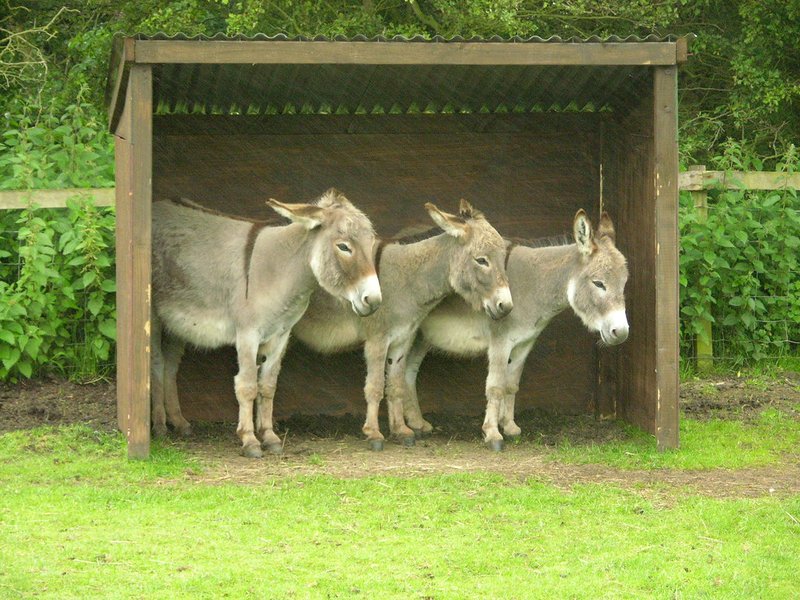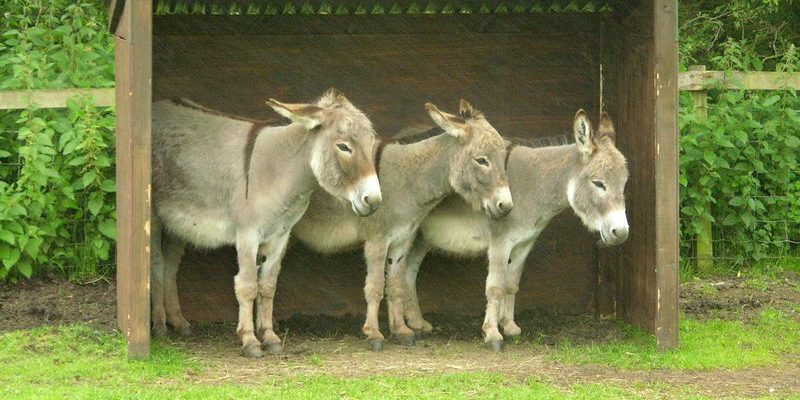
When it comes to donkeys, having a well-thought-out setup can make all the difference. You might be wondering why shelter and pasture are so critical. Well, donkeys are sensitive creatures, and their living environment affects their health, behavior, and overall happiness. Whether you’re a new donkey owner or just curious about how to improve your current setup, let’s dive into the essentials of setting up shelter and pasture for these adorable animals.
Understanding Donkey Needs
Before we go any further, it’s essential to grasp what donkeys truly need for a happy life. Unlike some animals, donkeys are social creatures that thrive on companionship. They enjoy having a buddy nearby, so consider this when deciding how many donkeys to bring home. Also, donkeys need to move around to stay healthy. They are natural grazers and explorers, and they require ample space to roam and munch on grass.
Another thing to keep in mind is that donkeys can be pretty hardy, but they still need protection from the elements. Too much Sun or rain can be uncomfortable for them. Creating a balanced environment that offers both shelter and space for grazing will ensure your donkeys are both physically and emotionally healthy.
Choosing the Right Shelter
When it comes to setting up shelter for donkeys, there are several factors to consider. Donkeys need a structure that protects them from weather extremes like heavy rain, snow, or intense sun. A simple shed will do the trick, but it should be well-built and have enough room to allow all your donkeys to move around comfortably.
Here’s what you should look for in shelter:
- Size: Aim for at least 200 square feet for two adult donkeys. They need enough space to turn around and lie down without bumping into each other.
- Ventilation: Good airflow is vital to prevent moisture buildup and keep the shelter fresh.
- Safety: Ensure there are no sharp edges or hazards inside that could injure your donkeys.
Donkeys also enjoy being outdoors, so include a run-in area where they can seek shelter as needed. This will help them feel secure while still allowing them to get fresh air.
Winter Considerations for Donkey Shelter
Winter can be particularly harsh, and it’s crucial to ensure your shelter is ready for colder months. Insulate the structure if you live in a snowy area. Straw is an excellent bedding option, offering warmth and comfort. You might also want to create a “windbreak” using bales of hay or boards to protect them from harsh winds.
Keep in mind that donkeys can be stubborn when it comes to staying inside during inclement weather. They love to be outside, so providing a dry, warm space is essential. Regularly check the shelter for cleanliness, as good hygiene helps prevent health issues.
Designing Pasture Space
Now that you have the shelter figured out, let’s talk about pasture space. Donkeys are natural grazers, and giving them the right kind of pasture is key. You’ll want to focus on having a mix of grasses and occasionally some shrubs. Here’s why:
- Nutritional Variety: Different plants offer different nutrients, which help keep your donkeys healthy.
- Exercise: Space for roaming isn’t just for eating; it allows them to explore and stay fit!
- Mental Stimulation: A varied pasture can keep your donkeys entertained, reducing boredom and preventing behavioral issues.
When setting up your pasture, make sure it has adequate fencing. Donkeys can be escape artists! Using sturdy fencing at least 4 to 5 feet high is essential.
Fencing Options for Your Pasture
Choosing the right fencing is crucial for keeping your donkeys safe and secure. Here are some options to consider:
- Wooden Fencing: This is sturdy and reliable but can be expensive. Make sure it’s well-maintained to prevent splinters.
- Electric Fencing: An affordable option that can be quite effective, but you’ll need to ensure it’s safe and properly maintained to avoid shocking the donkeys.
- Wire Fencing: Using high-tensile wire can be durable, but ensure it’s combined with a wooden or electric fence for safety.
Regardless of the type of fencing you choose, regular inspections are key. Check for loose boards or gaps and repair them promptly to keep your donkeys safe.
Water Supply in Shelter and Pasture
Proper hydration is critical for donkeys, especially during hot weather. Ensure that there’s a fresh supply of water available both in the shelter and the pasture. It’s best to use large, heavy-duty water troughs that won’t tip over easily. If you’re in a warmer climate, consider a heated water trough in winter to prevent freezing.
Make it a habit to check the water supply daily to ensure it’s clean and plentiful. Donkeys are less likely to drink dirty water, which can lead to dehydration.
Regular Maintenance for Donkey Environments
Keeping your shelter and pasture in good shape is an ongoing task. Just like maintaining a garden, it involves regular work. Here are some routine maintenance tips:
- Cleaning: Regularly clean the shelter and remove any waste to keep it healthy.
- Pasture Rotation: Allowing your donkeys to graze on a specific section of pasture while rotating them to another area helps the grass regrow and reduces overgrazing.
- Fencing Checks: Inspect fences for any damage at least once a month and make repairs promptly.
Setting up a calendar for these tasks can help keep you organized.
Final Thoughts on Donkey Care
Setting up the right shelter and pasture for donkeys is about more than just making a physical space; it’s about creating a healthy and supportive environment for these wonderful animals. Think of it as building a small community for your donkeys where they can feel safe, flourish, and enjoy each other’s company.
By paying attention to their needs, you’re not just taking on a responsibility; you’re becoming part of their world. Every little effort you put into their living conditions pays off in healthier, happier donkeys. So roll up your sleeves, get to work, and enjoy the rewarding experience of caring for your donkeys!

